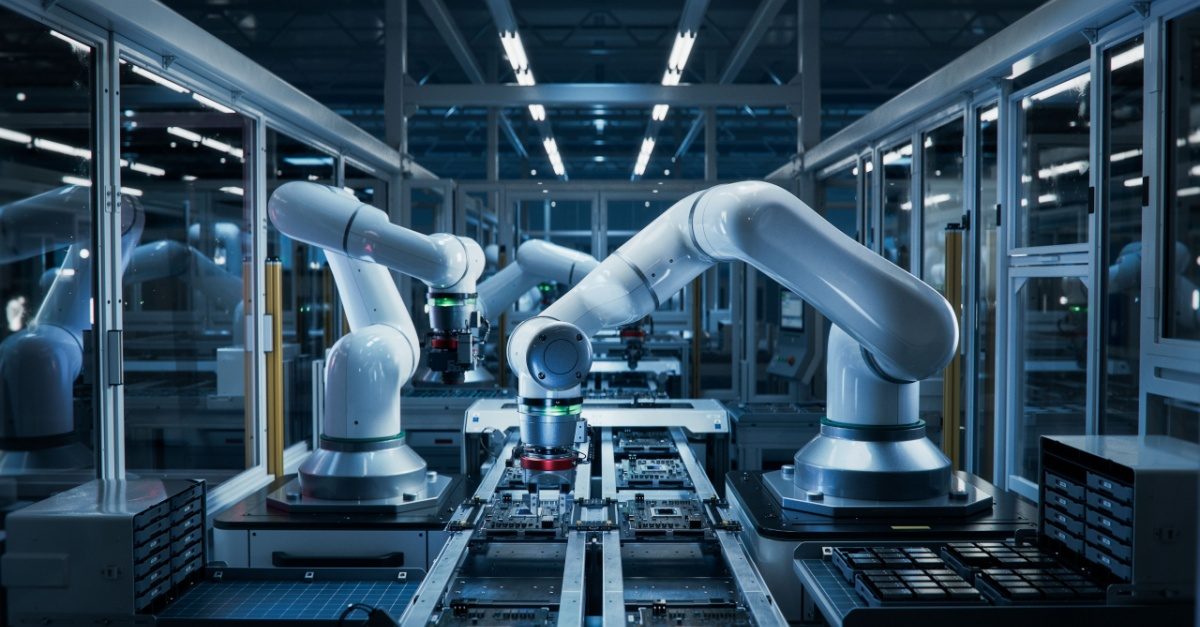
How High Precision Manufacturing Enhances Product Quality
When you think about high-quality products, it’s easy to imagine sleek gadgets or perfectly crafted machinery—like the latest aircraft or vehicle. But have you ever considered how high-precision manufacturing plays a key role in crafting these exceptional products? This innovative approach is the key to ensuring that products meet stringent quality standards, function flawlessly, and satisfy customer expectations.
Every fabrication project relies on different manufacturing advancements to elevate product quality. Let’s explore these technologies and understand why primary industries can’t thrive without them.
Metal Fabrication: A Cornerstone of Precision
The metal fabrication industry is a vital part of many manufacturing processes, especially in sectors where durability and strength are crucial. This process involves shaping and assembling metal components to create parts or products.
The metal fabrication process typically starts with raw metal sheets or bars, which are then cut, bent, or shaped into the desired form. Every metal fabricator knows that precision is critical to producing high-quality products. For example, if metal parts are used in an aircraft, even the smallest error can have significant repercussions. That’s why precise cutting and shaping are essential.
The Role of Technology in Enhancing Precision
In today’s world, technology plays a significant role in enhancing manufacturing precision. Achieving high levels of accuracy involves a wide range of sophisticated equipment and techniques.
Computer Numerical Control (CNC) Machining
A significant technique in metal fabrication is CNC machining. This advanced technology enables the creation of metal products in complex shapes and precise dimensions by using computer-controlled tools. This allows manufacturers to produce parts with very tight tolerances and intricate details, contributing significantly to overall product quality.
When you opt for CNC machining services, you’re investing in a process that enhances accuracy, reduces waste, and improves the overall quality of the final product.
Advanced Software
Computer-Aided Design (CAD) and Computer-Aided Manufacturing (CAM) allow for detailed design and precise control of manufacturing processes. These tools help create intricate designs and ensure that every component is produced according to exact specifications.
Laser Cutting and 3D printing
Laser-cutting machines provide exceptionally clean cuts and high precision, making them ideal for intricate designs. 3D printing allows for the production of complex shapes that would be difficult or impossible to achieve with traditional methods.
These manufacturing technologies are keys to revolutionising precision manufacturing. But how can they contribute to the overall quality and functionality of any finished product?
Enhancing Product Quality Through Precision
High-precision manufacturing goes beyond just producing accurate parts; it fundamentally enhances the quality of the final product with these value-adding features:
Consistency and Reliability:
Precision manufacturing ensures that every part produced is identical, which is crucial for maintaining the consistency and reliability of the final product. Whether you’re talking about a car engine, a medical device, a consumer electronics gadget, or structural steel used in the construction industry—consistency means that each unit performs as expected and meets safety standards—with short lead times.
Reduced Error Rates:
When manufacturing processes are precise, the likelihood of defects and errors is significantly reduced. High-precision methods minimise the need for rework and adjustments, which not only saves time but also ensures that the product’s quality remains high throughout the production cycle.
Improved Performance:
Precision in manufacturing often translates to better performance. For example, in high-tech industries, precise components work together more effectively, leading to enhanced functionality and efficiency. This is particularly important in sectors like aerospace and automotive, where performance and safety are critical.
Increased Durability:
Products manufactured with high precision tend to have better durability. Accurate dimensions and tight tolerances contribute to stronger, more reliable components that can withstand wear and tear over time. This durability is essential for products that are subject to extreme conditions or heavy usage.
Better Fit and Finish:
High-precision manufacturing ensures that parts fit together seamlessly and have a superior finish. This not only improves the aesthetics of the product but also contributes to its overall performance. For instance, well-fitted parts in a piece of machinery operate more smoothly and with less friction. Powder coating, additionally, offers more corrosion resistance, resulting in high-quality products and better protection.
High-precision manufacturing is set to become even more advanced. Innovations such as artificial intelligence (AI) and robotics are expected to enhance manufacturing processes further. AI can analyse large amounts of data to predict potential issues and optimise production. At the same time, robotics can perform repetitive tasks with high precision and consistency.
Precision Manufacturing is the Future
High-precision manufacturing is a game-changer in producing high-quality products. By using advanced technologies like CNC machining and focusing on meticulous techniques in metal fabrication, manufacturers can ensure that every component is made to exact standards. This commitment to precision not only enhances the performance and reliability of products but also leads to cost savings and reduced waste.
As technology continues to evolve, the future of precision manufacturing looks promising. Expect even more innovative solutions that will further push the boundaries of what’s possible, leading to products that are more reliable, efficient, and cost-effective. So next time you marvel at a perfectly crafted product, remember that high-precision manufacturing is working behind the scenes to make it all possible.
From introductory production planning and scheduling training to advanced types of manufacturing operations, the IoSCM Manufacturing and Production Academy offers manufacturing qualifications from Level 2 to Level 7.
Take a look at the range of qualifications available HERE.

